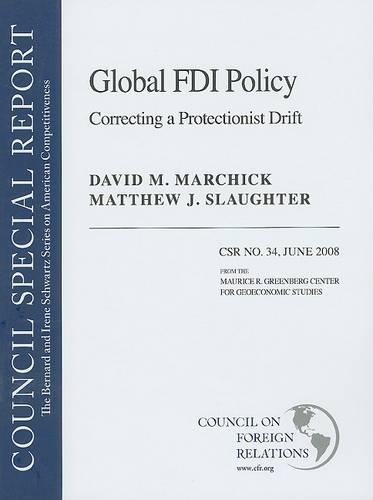
Global FDI Policy: A Protectionist Drift
(Paperback)
Publishing Details
Global FDI Policy: A Protectionist Drift
By (Author) Matthew J. Slaughter
Council on Foreign Relations
Council on Foreign Relations
18th July 2008
United States
Classifications
Tertiary Education
Non Fiction
332.673
Physical Properties
Paperback
64
Description
In the past three years, many countries have adopted or expanded regimes to review inward foreign direct investment (FDI) for either "national" or "economic" security purposes. These examples of potential restrictions, however, have occurred amid ongoing changes in the patterns of FDI flows. FDI is actually flowing more into sectors, such as energy, telecommunications, and infrastructure, that are widely seen as critical for national security. But in many countries there has been a drift in public opinion away from global engagement. In the United States and elsewhere, voters have long expressed concerns about the labor market pressures of FDI - consistent with the overall pressure on real and relative earnings for many workers in the United States and elsewhere.This report explores what best practices and principles should guide governments in formulating and implementing policies to govern national security reviews of FDI inflows, including how to prevent legitimate national security reviews from becoming tools for economic protectionism. The authors also consider what should be the policy responses from advanced nations and leadership groups, including the Group of Eight, Association of Petroleum Exporting Counties, and Organization for Economic Cooperation and Development to the emergence of new FDI restrictions.
Author Bio
David M. Marchick is a partner at Covington and Burling. He previously served as deputy assistant secretary of state for transportation affairs, where he was the senior U.S. negotiator for bilateral aviation agreements. Prior to this assignment, Marchick served as deputy assistant secretary for trade policy at the State Department and principal deputy assistant secretary of commerce for trade development. Matthew J. Slaughter is an adjunct senior fellow for business and globalization at the Council on Foreign Relations and an associate professor of business administration at the Tuck School of Business at Dartmouth College.
